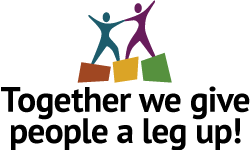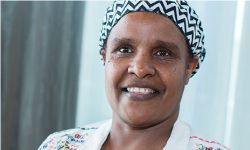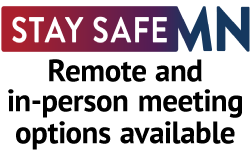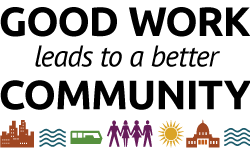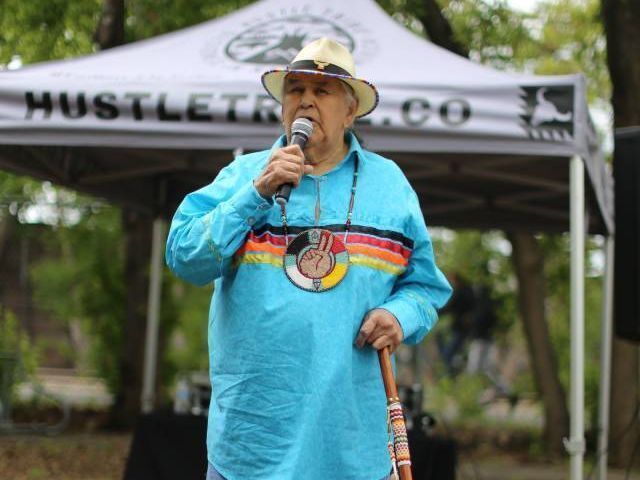
It wasn’t until my junior year of college that I first learned about the American Indian Movement (AIM), and even then, it was in an elective Race and Ethnic Studies class I chose to take at St. Olaf College. Despite spending 13 years in the Minnesota public school system, I was never taught about this revolutionary, and local, movement. It has shaped civil rights history and directly impacts the work we do today at Daily Work.
A Revolutionary Movement Born in Minneapolis
AIM began in the summer of 1968 in Minneapolis’ Franklin Avenue neighborhood—what is now the American Indian Cultural Corridor. Created by Native activists including George Mitchell, Dennis Banks, and Clyde Bellecourt (pictured above), the movement focused on injustices like police brutality, systemic racism, broken treaties, housing insecurity, and unemployment. Their focus on the urban Native population resonates deeply with the challenges our job seekers face today. Many of the barriers our community navigates—lack of access to fair employment, education, stable housing, and digital tools—are a continuation of the same inequities AIM fought to expose and dismantle.
From Protest to Progress: AIM’s Lasting Legacy
In the face of federal surveillance and intimidation, AIM organized powerful protests like the 1971 occupation of Alcatraz Island and the 71-day standoff at Wounded Knee in 1973. These actions brought national attention to the realities of Native life in America. Although AIM disbanded in 1978, its legacy lived on. In 1979, Clyde Bellecourt founded the American Indian Opportunities Industrialization Center (OIC), which carried AIM’s mission forward by focusing on employment, education, and economic self-sufficiency.
Today, through the Takoda programs —a Dakota word meaning “friend to all”—American Indian OIC offers GED programs, vocational training, and career services for all Twin Cities residents. These programs reflect the belief that stable, meaningful work is a pathway to justice and self-determination, something that is also central to Daily Work's mission.
Carrying the Work Forward
As a summer intern at Daily Work, I’ve collaborated with the Takoda Institute and seen how both organizations emphasize dignity, equity, and relationship-based support in their work. While our programs may differ, both organizations are committed to removing barriers and creating access to education and employment. Learning about Takoda’s roots in the American Indian Movement helped me recognize how today’s support systems are built on the foundation of earlier activists, whose contributions are too often left out of the public narrative.
This learning, coupled with my experience at Daily Work, has deeply shaped how I view advocacy and resistance in my community and helped me to better understand how organizations like Daily Work continue that legacy today. Native history, especially local history, is still overlooked in most classrooms and public conversations. That makes it even more important for me to share what I’ve learned. Uplifting these stories allows us, as current and future community leaders, to better understand where we come from and how we can continue the work for equity and justice in meaningful, informed ways.
Photo: Founder Clyde Bellecourt at AIOIC’s 40th anniversary celebration in 2019
By Kylee Knettel, a rising senior at St. Olaf College majoring in Psychology and Race, Ethnic, Gender, and Sexuality Studies. As a summer 2025 intern at Daily Work, she supported job seekers one-to-one while exploring how social justice and equity intersect with career services.



